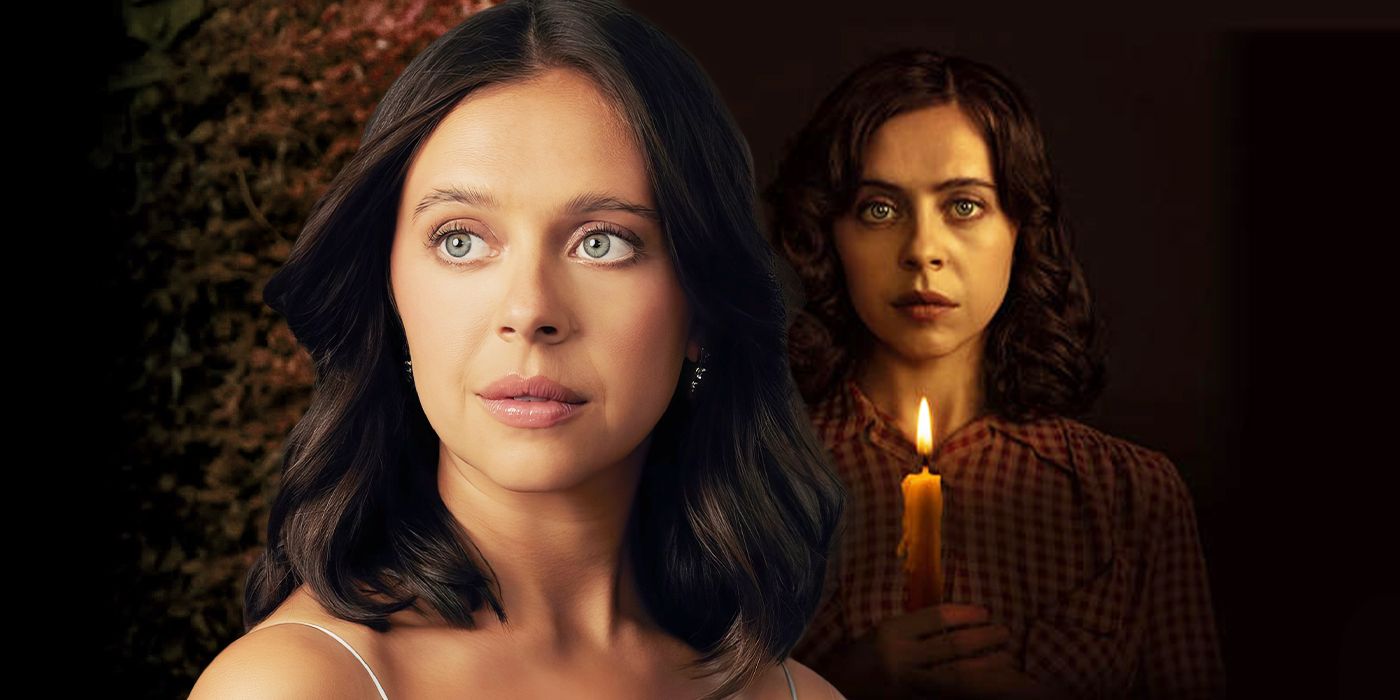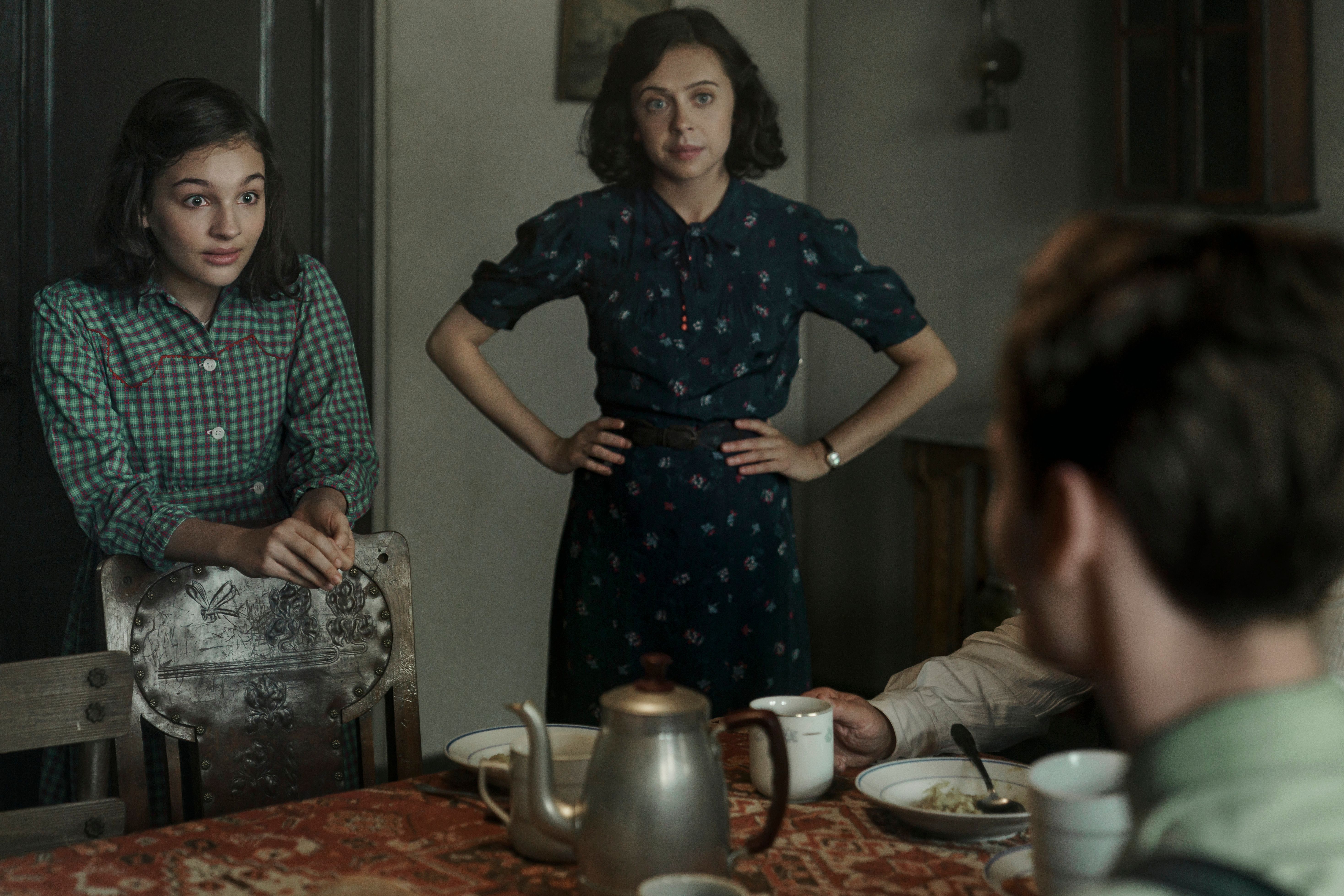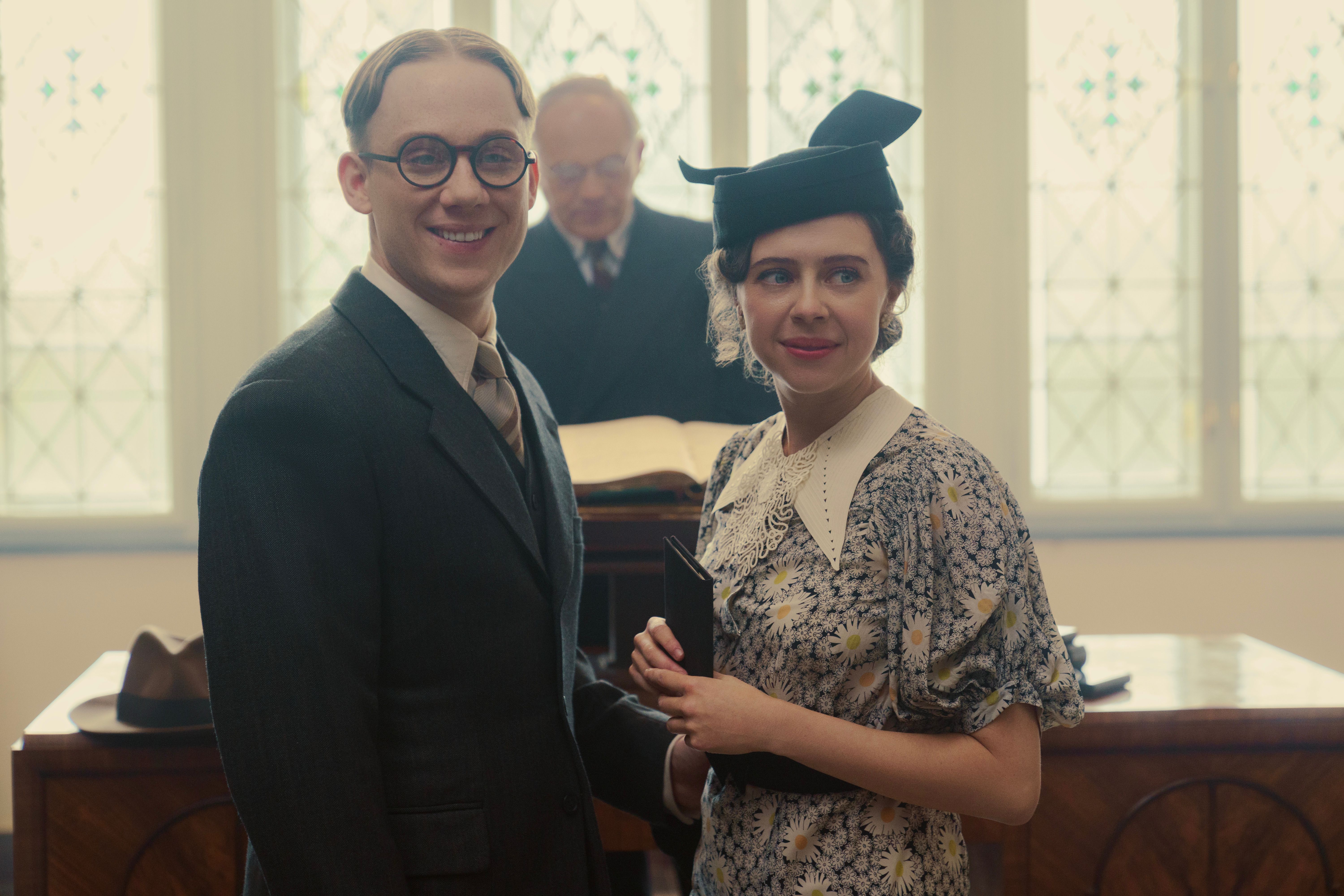Last month, National Geographic premiered their new limited series A Small Light, which tells the harrowing true story of Miep Gies (Bel Powley), the woman who was responsible for helping hide Anne Frank's family from the Nazi regime during the horrific events of the Holocaust during World War II. The remarkable series takes a different approach to this period of history, shifting the narrative away from Anne Frank's well-known story, and instead providing an insightful look into the everyday lives of the people who took a stand against prejudice—at great personal risk—and those that stood idly by.
Ahead of the final episode airing, Collider at the opportunity to chat with Bel Powley about bringing Miep to life, how she prepared for the role, what it was like to explore the beautiful romance that plays out between Miep and her husband Jan (Joe Cole), why the final episode was the most difficult episode to film, and how being part of the series has influenced her life.
COLLIDER: So I believe that you spoke to another outlet about how you had shied away from doing war-related films because they're very focused on the story of men. I think that's what drew me to A Small Light was because it really struck me that this is a woman's story, and more specifically, an ordinary woman doing extraordinary things. How has playing Miep changed you as a person?
BEL POWLEY: Oh my God! Big question to open with! [Laughs] Well, firstly, it was just an incredible experience making this show. As an actor, you rarely, maybe never in your career do you get experiences and projects where kind of every box is ticked for you? And for me, this really was what this was. I connected to the role, I connected to the part of history, I connected to the narrative, and I loved working and collaborating with the writers and the directors, and I loved working with all the actors. So it was a very special experience for me as a project.
And in terms of the character I was playing, listen, when I read the pilot, I was like, “What would I do in this situation?” immediately after reading, like, 20 pages, and I still think that. I hope that that's what audiences connect to, and it makes them think that, too. I think we can all learn something from this woman, as you say, who was just an ordinary person who did an extraordinary thing, who had this very strong moral compass and such an unwavering sense of what was right and what was wrong, and an immense amount of bravery, but also was just a normal young woman in ways that we can all relate to.
Something that is so interesting is that a lot of films and series that focus on the Holocaust, they focus on the concentration camps because that's the thing that we know is this horrible, heinous thing that happened. But then you have A Small Light that focuses on this much more familiar and very relevant horror, which is people turning a blind eye to horrible things happening around them. Have you heard from people while promoting who are seeing this and making those connections?
POWLEY: Yeah, I think so. It feels like people are connecting to this show. You said at the beginning that I've said that I shied away from period pieces about this part of history because they're often all about men, and that is so true. Like, I can't watch another thing about a man in the trenches, but another reason I think I've shied away from period pieces is because, often, I feel disconnected from them when I'm in them and when I'm watching them, and it could be because characters, actors feel kind of trussed up in these costumes, or it could be that the kind of prim and proper, olden day language is a kind of barrier, but I don't know what it is. But yeah, I’ve felt this kind of disconnection, and I also think that this is a part of history that, as much as it's very important to keep retelling stories about this part of history, we retell them a lot. And so, if you're gonna go there, it's got to be in a new, fresh relatable way. We don't need to be bashed over the head by the same historical facts we already know, like, as you said, there are a lot of Holocaust films and television shows that are just about wars, going in concentration camps, or a lot about men on the frontline.
I think to get into that part of history through the eyes of this young, kind of everywoman, is a great way to make people actually really stop and think about what it was really like for everyday people, and showing it through this kind of day-to-day modern lens is a great way to make people connect and relate to the story. It was so important to me, with retelling a part of history that people know about, it has to make people think about the parallels in the world today. I think that we've achieved that from people’s responses.
You have. How does playing a real person change your approach to bringing that character to life?
POWLEY: It doesn't change the approach. I think that, for me, whether I'm playing a real person or a fictional character, it's always kind of the same process, right? Of course, it's easier playing a real person where there's as much material out there as there is on Miep Gies, but it's the same process as in, I do a lot of prep. I come from theater, right? So I love rehearsal and I love prep. I love just sitting there and just going through the script and thinking about all the stuff that happens that's not in the script. And so yeah, I do a lot of prep and base-level work, like creating the person from the ground up. Obviously, when you're doing it about a real person, then you have all of that material at your fingertips.
For example, with Miep, I went to Amsterdam, [that] was the first thing I did, just to immerse myself in that kind of iconic place where our story takes place. I got on a bike and I cycled around, and I visited her old apartment that she lived in with Jan, and I went to the Anne Frank House, which I'd never been to. I read her book and kind of built– Like things she says in her book, like, oh, that she loved fashion, and she would go past store windows and try and recreate the outfits that were on the mannequins, and she loved certain pieces of music, and she loved dancing with her friends, and she talks about how handsome she thought her husband was when she first met him. It's things like that that kind of make you feel like a whole real person. You've got to know, for example, when your birthday is, it's February. I know that sounds stupid, but it's stuff like that that is kind of this base layer of this character, and I would do the same if I was playing a fictional character, I'd just make all that stuff up.
Then, for me, it's like the first day of filming, I kind of let all that stuff go. There's no more research to be done. There's no more base layer of the character to be done, and then you're just present, and you're in it, but as this person that you've molded.
I love that, you are speaking my language. Before I got into journalism, I did acting, so I always love hearing how everybody approaches characters differently. Some people do playlists or journal as the character, and I love hearing that your theater experience has helped you build that character in a very specific way. I love hearing about that.
POWLEY: Yeah, and you're so right, actually! It's not really like journaling as such, but I'll always have a notebook for each character, and when I'm writing in my notebook, I'll always write in the first person from the character's point of view.
You mentioned Jan and Miep, and I love the relationship between them. I think a lot of times stories, specifically now, it feels like a lot of shows forget how important romantic relationships are and how they can really anchor a story, especially when there's a lot of horrible things going on around that relationship. It helps kind of offset that. What was it like for you to develop that relationship across the series with Jan because it's such a beautiful story that plays out?
POWLEY: It's one of my favorite parts of the story. So on the sound stages, we had one sound stage which was the annex and Opekta offices, and then we had another sound stage which was Miep and Jan's apartment. Obviously, we'd shoot kind of block shoot sections from each, and whenever we got into the scenes in Miep and Jan’s apartment, I really did feel like I was like coming home because working with Joe [Cole] was just so easy, and such a delight. We have such a similar way of working in that we really just both want to get the scene on its feet and kind of feel it out in a very organic and fluid way. We're not really into over-intellectualizing it and talking about it too much. We're like, “Let's just get on with it!” Our chemistry was so good, like from day one, and we're still such, such good friends. And so it was kind of like– I never know what word to use other than fun, and I find it so weird describing this job as fun because obviously, it wasn't fun because of the subject matter.
But it was a really interesting exercise for me having these two parallel arcs for Miep going alongside each other, one being everything that's going on in the annex and then the other being the development of this marriage and this relationship. Like, I feel like if you took that out of our story, you could have like a whole other TV show about it, which was quite exciting. It wasn't really secondary, and in that way, this show also, for me, can be seen as a coming-of-age story, and almost like a romance. I think that we really did get to explore the steps and the stages of this marriage properly, and give it the due diligence it deserved. That's one of the things, also, which is gonna make people, hopefully, relate to this show because yes, it's set against this overarching, intense, political and historical backdrop, but also it's about the humanity in this situation, it's about marriage, it's about coming of age, it's, in some ways, about parenting. I mean, the Franks were still parenting their kids in the annex. It's coming-of-age for Anne and Margot, like those are the things, for me, that are the things I can relate to. And so those are almost the most exciting and interesting scenes for me to play, and I loved my scenes with Joe so much. I love the Miep and Jan relationship.
I loved it as well, but I'm curious, what was the most complex scene for you to film in this series?
POWLEY: Well, I'd say firstly, as I kind of have just said, the easiest ones definitely were the Miep and Jan scenes because I feel like we can all relate to being in love and being in a relationship. I know the circumstances and the stakes were higher than maybe what I've ever experienced, but there was that relationship that I could really relate to on a human level.
I found it really, really difficult to film the scenes in Episode 8, which is the last episode. Obviously, you know, everyone knows how this story ends, and the scene, really towards the end after they find out that Anne and Margot have died at Bergen-Belsen, when Miep goes to the train station where Jan is working, helping repatriate people who have come back after liberation, I found that scene really, really tough. It's always so funny in this job when you have to have emotional scenes where it's like, “And she cries.” Sometimes you're an actor pretending to cry, and I can do that, and then sometimes no, you're actually crying, and it feels unbelievably truthful, and that really was one of those scenes for me.
I don't know, it was something about... We were filming in a train station in Prague, and we had lots and lots of extras, some of whom had shaved their heads for the roles, and it just all felt kind of very real and brought it home. And then also, by that time, I'd gotten to know Billie [Boullet] and Ashley [Brooke], who played Anne and Margot. I'd gotten to know the actors playing those characters so well they were like little sisters to me, and they're very similar ages to Anne and Margot, so I didn't really have to pretend because all I could think about was them, the people that I personally knew. So it was very easy for me to empathize with Miep in that moment, and really quite tough.
The entire series of A Small Light is streaming now on National Geographic. Check out the trailer below:



